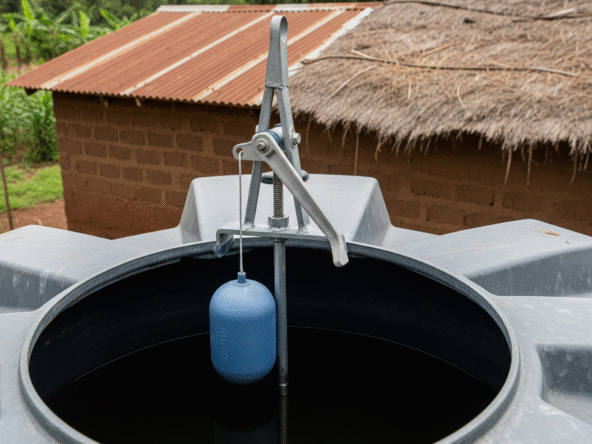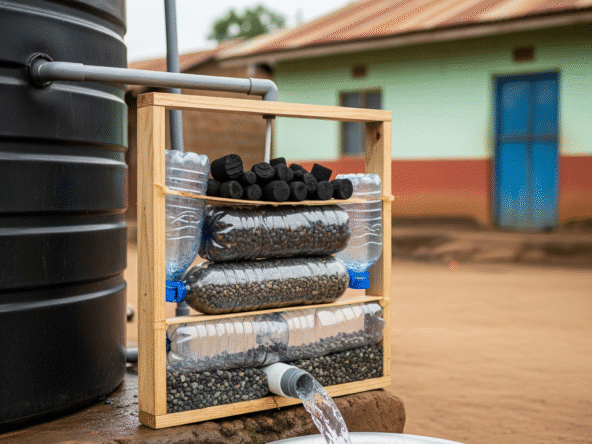In water-stressed regions, aquaponics systems provide a sustainable method of combining fish farming with food production. Yet many systems ignore one critical issue: what to do when tanks overflow. Rather than wasting that water, smart homesteads are now turning to tank overflow reuse in aquaponics setups, especially in backyard gardens and compound systems.
This guide explains how to design and implement an overflow reuse system that works with your aquaponics layout to improve efficiency and reduce water loss.
Why Reuse Overflow Water?
Overflow water is often rich in nutrients and can be redirected for multiple benefits:
- Minimizes water waste
- Feeds nutrient-rich water to grow beds or garden trenches
- Prevents flooding around tank bases
- Supports gravity-fed irrigation
(See: Gravity-Fed Tank Setups in Kenya)
Best Tanks for Overflow Systems
The most common tanks used in Kenyan aquaponics setups include:
- IBC tanks (1,000L) – Durable, accessible, and ideal for fish storage
(See: IBC Tank Use in Kenyan Homes) - Plastic storage tanks (500L–2,000L) – Used as sumps or secondary reservoirs
- Overflow drums or barrels – Capture and redirect excess water
Raising the fish tank helps enable gravity-fed flow to the grow bed below.
How Overflow Reuse Works in Aquaponics
Here’s how a typical system is set up:
- Water overflows from a full fish tank into a connected grow bed or gravel basin.
- The grow bed acts as a biofilter, cleaning water while feeding plants.
- Treated water can then:
- Return to a sump tank for recirculation
- Be redirected to garden zones or compost beds
(See: How to Integrate Composting into Backyard Gardens)
Materials for a Simple Overflow Setup
To build your own system, you’ll need:
- IBC or plastic water tank
- Overflow pipe (PVC or hose)
- Hydroton or gravel for grow beds
- Plant trays or net cups
- Sump tank or collection barrel
- Float switch or control valve
(See: Tank Refill Automation Using Float Switches)
Layout Tips for Efficiency
- Elevate the fish tank to use gravity effectively
- Install mesh screens at outlets to prevent fish escape
- Direct excess overflow to soak pits or garden trenches
(See: Construction Site Drainage Planning)
Optional Add-ons to Improve System Safety
- Overflow alarms to avoid unnoticed spillage
(See: Alarm Systems for Tank Overflows) - Shelters or enclosures to protect tanks from sun damage
(See: Tank Shelters and Lockable Enclosures) - Greywater options to channel overflow into dry-season crops
(See: Best Plants for Dry-Season Gardens in Kenya)
Tank overflow reuse in aquaponics setups is an efficient way to save water, enrich gardens, and protect your infrastructure. With the right layout and basic materials, you can convert a potential water loss problem into a sustainable advantage.
Explore More:


